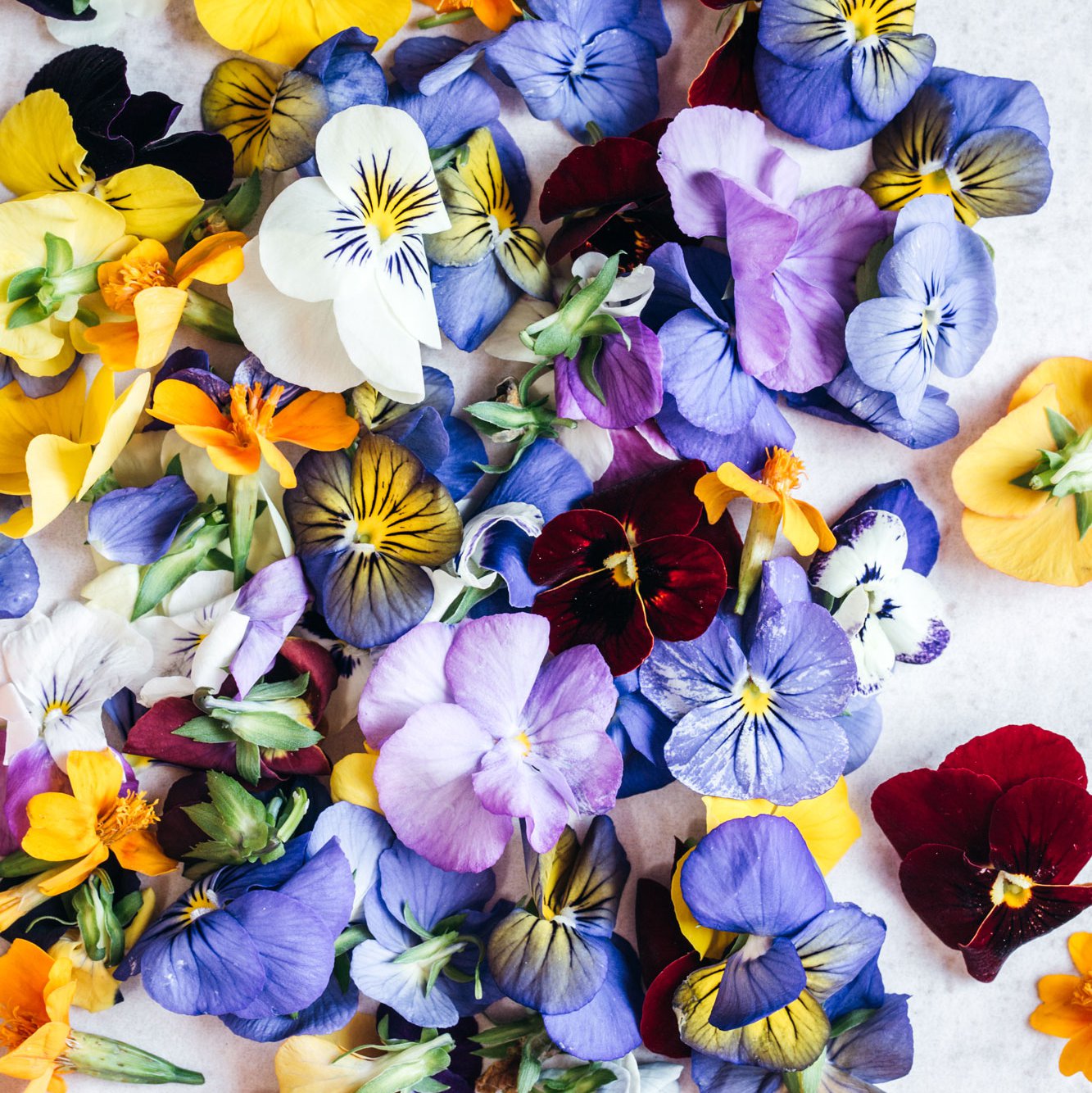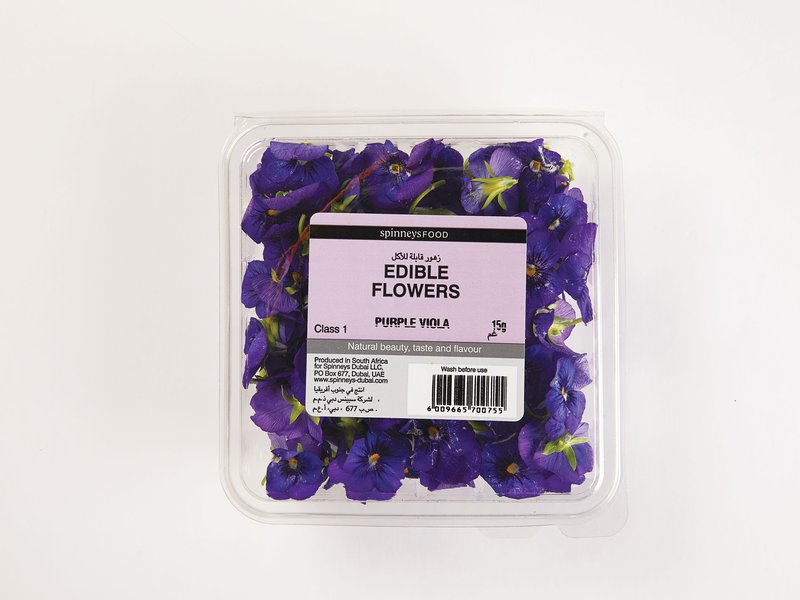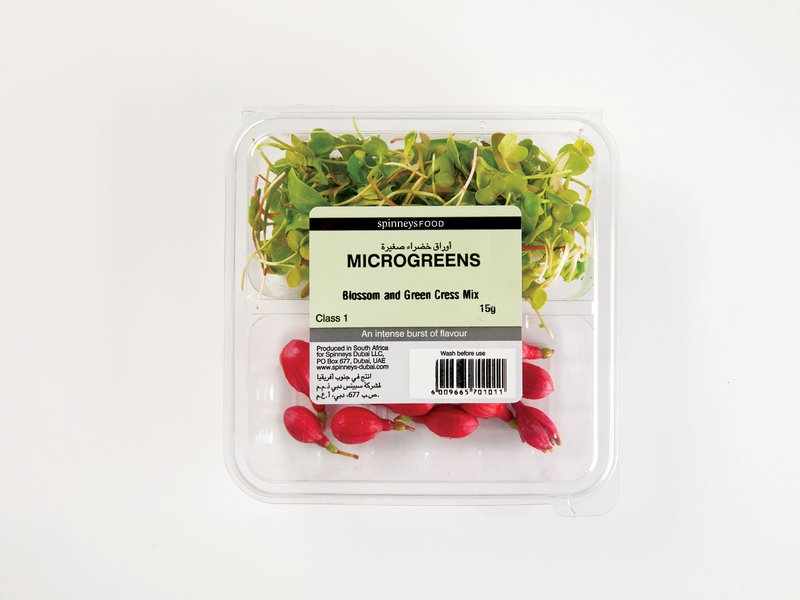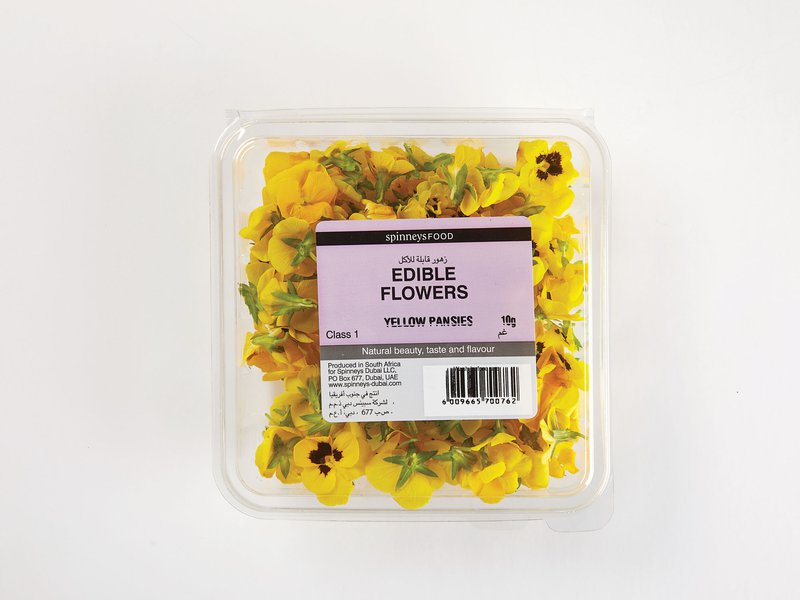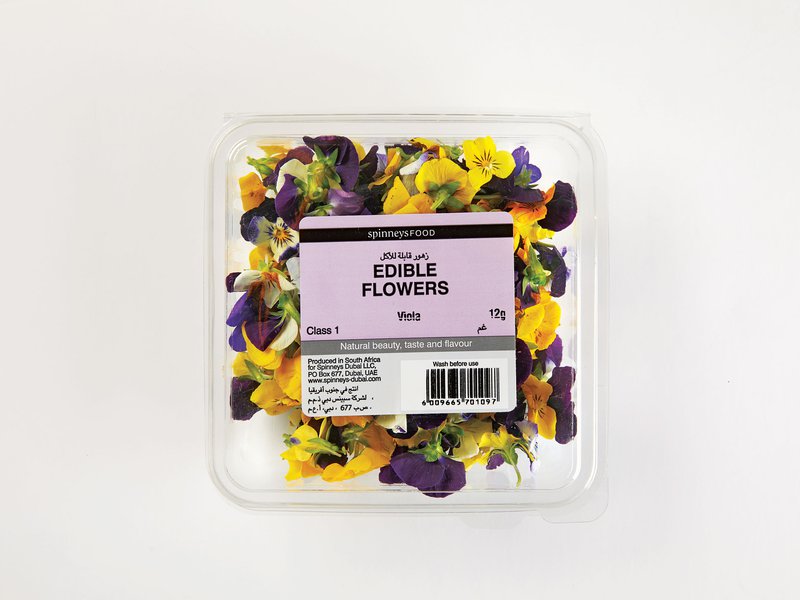Located just outside Johannesburg in South Africa, Pico-Gro is a sustainable, microgreen farming enterprise that supplies Spinneys with edible flowers.
We recently visited its CEO and founder Erika Oberholzer to find out more about her exquisite products
We recently visited its CEO and founder Erika Oberholzer to find out more about her exquisite products
Were did the name Pico-Gro come from?
Pico, nano, micro – these are all prefixes in scientific notation. Pico is essentially “tiny” and since I’m in the business of growing tiny plants and vegetables – the name just works. I didn’t set out to farm the range that I do today – yet the name becomes more and more relevant as I expand our product lines. Nothing was ever really planned, it all just flowed.
Tell us about your current range.
We have an extensive range of fresh micro and mini salad leaves, elfin veggies, edible buds and blossoms – all of which are harvested daily and supplied to not only South African retailers and restaurants, but also a huge international client base. We’re very much world leaders in what we do.
You’ve partnered with Yukon – another South African company and supplier to Spinneys – to export your products. Why?
Our products are exceptionally light and not viable to be flown across the world on their own. By working with the wonderful team at Yukon, which exports a variety of baby vegetables to the same international markets that I supply, I’m able to share their pallets, which are transported on passenger flights. My initial meeting with the team at Yukon was random and serendipitous – much like everything else in my business.
“I can’t think of a more beautiful way to make a living than picking flowers.”
“I can’t think of a more beautiful way to make a living than picking flowers.”
Besides the UAE, which international markets do you supply?
We export to Mauritius, the UK, Germany, France, The Netherlands, Hungary, Russia and Hong Kong, Macau and more.
And how did this all begin? When and how was Pico-Gro established?
Pico-Gro grew from nothing. I started the company at 32 and this June it will be 25 years old. It actually all started with my propagating a plant in a friend’s garden, which led to me specialising in cut flowers and essential oils, before I started to explore new ideas. When I started the company, I knew that I enjoyed working with plants, that I possessed the skills to grow them and that I had learnt a lot about them at university as I studied botany and biochemistry. It was just about finding a way to make money with this knowledge that was the challenge. I set out with no financial aid – which I think was a blessing in disguise. There was very little at stake and I could make mistakes. The company has grown slowly, and as time has gone by my ideas and confidence have grown. I’ve also furthered my studies in project management and I have a Master’s degree in Philosophy in applied ethics with a focus on emerging farmer development – I use everything I’ve learnt on a daily basis. The courage that it took to start Pico-Gro was huge – there have been many sleepless nights and many hours of agony – but it’s all been worth it. This is my entire life.
Talk us through your production process.
Our production never stops; the process is extremely labour intensive and complex. My team is busy seven days a week, 18 hours a day, sowing seeds, washing and refilling trays, harvesting the leaves, herbs and flowers and moving them over to be packaged. Everything is carefully cut and inspected by hand to ensure only the finest quality product is sent to the packing area.
“Everything is carefully cut and inspected by hand to ensure only the finest quality product is sent to the packing area.”
“Everything is carefully cut and inspected by hand to ensure only the finest quality product is sent to the packing area.”
What challenges do you face?
Our biggest challenge is managing the African heat. We’re constantly monitoring irrigation, and ensuring our seedlings are free from any fungal diseases. Everything also comes down to time – as managing a cold chain is a sophisticated and intense reality. We have two industrial engineers who make sure everything runs smoothly. And overall I just have the most unbelievable team – I don’t think they can be replicated and having a strong force is really at the base of doing something this magical.
How do you know if a flower/bud is edible? What advice do you have for consumers?
You’ll be amazed at the number of edible flowers that are out there – and this is what keeps me busy: researching the potential of plants, some of which may have not been used as edible products for the past 100-200 years. But, be careful! You can’t just go into the garden and pick any old flower to eat. For example, nasturtiums or tulips are edible – but don’t touch agapanthus, fox gloves or arum lilies! And don’t ever eat from a bunch of cut flowers you may have bought. It takes investigation, scientific testing and a lot, lot more before a flower or bud is deemed safe to consume. The safest approach is to eat buds/flowers that are being marketed as edible.
Tell us about your food safety methods.
We handle all our flowers like food products – and treat them as you would carrots, spinach, etc. Where ordinary nurseries and cut flower establishments could use agricultural chemicals, we don’t – as all our plants/buds are being grown for consumption. We are audited to the nth degree and adhere to strict standards of our own and to those of our clients.
You’ve played an active role in job creation, tell us more.
Being able to provide employment opportunities in South Africa is important to me. There are a significant number of uneducated people in our country and farming is one of those industries that has the potential to utilise these people and upskill them as workers. Many of our team members come from a nearby township and we spend a lot of time doing on-site training. We are able to provide jobs for nearly 200 people – and while it’s hard work, I can’t think of a more beautiful way to make a living than picking flowers. We’re a family at Pico-Gro – this is a huge part of what we stand for and the type of culture we’ve established.
